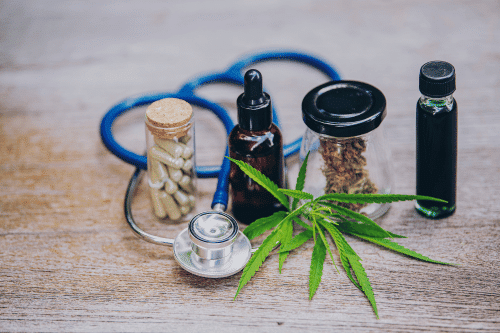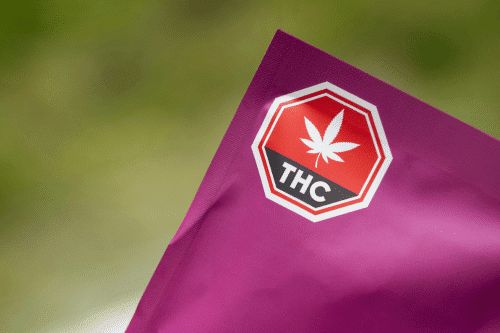THC Cleanse: A Comprehensive Guide
Cleansing THC from your body involves understanding the science behind its effects and metabolism. This guide outlines effective methods, natural detoxification processes, and practical tips for a safe detox journey.
Understanding THC and Its Effects
THC, or tetrahydrocannabinol, is the psychoactive component of cannabis. It binds to CB1 receptors in the brain, influencing mood, brain function, and physical health. THC is stored in fat cells and interacts with the body’s endocannabinoid system. Over time, the psychoactive effects diminish, but traces of cannabis can remain detectable for an extended period.
How THC Metabolizes in the Body

The Role of the Endocannabinoid System
The endocannabinoid system plays a crucial role in detoxification. THC interacts with CB receptor agonists, affecting various physiological functions. The metabolization process depends on body fat percentages, metabolic rate, and activity level.
The Breakdown Process of THC
THC is stored in fat tissues and processed by the liver. The detoxification process converts THC into detectable metabolites. Body weight, fat percentage, and usage patterns influence how long THC remains in the system. Heavy smokers and chronic users retain THC for an extended period, while light users metabolize it faster.
Drug Testing and Detection Windows
Types of Drug Tests
- Urine Tests: Detect THC-COOH in urine drug samples for up to 30 days.
- Blood Tests: Effective for detecting THC in the bloodstream for up to 7 days.
- Hair Drug Tests: Can identify marijuana usage for up to 90 days.
- Saliva Tests: Useful for detecting recent cannabis use within 1-3 days.
Detection Times for THC
- Occasional users: Detectable levels last 3-7 days.
- Frequent users: THC may remain detectable for 10-30 days.
- Heavy users: Extended detection times, often exceeding 30 days.

Importance of Hydration in THC Cleansing
Drinking plenty of water plays a pivotal role in the elimination of toxins. Staying hydrated supports liver function and aids the removal of toxins. Consuming oz of water throughout the day ensures kidney health and optimizes the detox process. However, excessive water intake or warm water alone is not enough to pass drug screenings.
Nutrient-Rich Diet for Detoxification
Key Foods to Include
- Leafy greens: Boost liver health and help flush toxin levels.
- Lean proteins: Support metabolic rate and body detox.
- Dietary fiber: Promotes bowel regularity to remove THC metabolites.
- Herbal extracts: Ingredients like Burdock Root Extract enhance detoxification.
Foods to Avoid
- Processed foods: They slow the detox process and increase toxin levels.
- Sugary snacks: Negatively affect body fat metabolism.
- High-fat meals: Retain THC in fat cells.
Role of Exercise in Aiding Detox
Regular exercise, including aerobic exercises and cardiovascular exercises, helps burn fat tissues where THC is stored. Activities like yoga and weight loss-focused workouts improve body time for detox. However, overexertion close to drug screenings may temporarily release THC into the bloodstream.
Overview of THC Detox Products
Commercial Detox Kits
Products like Toxin Rid, Mega Clean, and THC detox drinks claim to speed up the detox journey. Detox pills, detox shampoos for hair follicle drug tests, and same-day detox kits are popular options. Positive reviews highlight their benefits, but scientific evidence varies.
Natural Home Remedies
- Lemon water: Supports natural detoxification.
- Cranberry juice: Acts as a mild diuretic.
- Apple cider vinegar: Aids in the detox period but lacks comprehensive studies.
Potential Withdrawal Symptoms of THC Detox
Marijuana withdrawal symptoms, such as irritability, insomnia, and changes in appetite, are common in heavy users. Psychological aspects, including anxiety, may emerge during the detox experience. Understanding the risks of addictive substances and addressing substance abuse is essential for a safe detox process.
Risks of DIY Detoxification
Physical Risks
Rapid detox methods, like extreme diets, may lead to adverse effects such as dehydration or health conditions caused by electrolyte imbalances.
Psychological Risks
The process of detoxification may trigger anxiety or depression in marijuana users, especially in those struggling with a substance use disorder.
Tips for Safe and Effective THC Cleanse
- Follow a balanced diet with natural ingredients like lean meat and dietary supplements.
- Engage in regular physical activity to boost fat cell metabolism.
- Stay hydrated with plenty of water or alkaline water.
- Avoid detox kits that lack a money-back guarantee or proven effectiveness.
When to Seek Professional Help
Identifying Addiction and Dependence
If marijuana usage disrupts daily life, consult a healthcare professional. Signs of substance use disorder include increased tolerance, cravings, and difficulty quitting.
Resources for Support and Treatment
- Marijuana Anonymous: Peer support for aspects of addiction.
- American Addiction Centers: Provide detox programs and rehab for substance abuse.
- Detox Centers: Facilities like Opus Treatment offer personalized care.
A THC cleanse is achievable through a combination of a healthy diet, regular exercise, and effective methods like detox kits. For individuals facing challenges, seeking professional guidance ensures a safer and more sustainable approach to detoxification.
FAQ's
THC can remain in the body for varying lengths of time depending on factors such as usage patterns, body weight, and metabolism. For occasional users, THC may clear within 3-7 days. Frequent users may take 10-30 days to detox, while heavy users or chronic users can retain THC for over a month. The type of drug test also influences detection windows, with urine tests being the most common and sensitive.
Detox products, such as Toxin Rid, THC detox drinks, and detox shampoos, may provide temporary relief by masking or reducing detectable THC levels. These products are particularly popular for same-day detox purposes. However, their effectiveness varies, and many lack substantial scientific evidence. It is essential to research customer reviews and look for products with a money-back guarantee to ensure reliability.
DIY detox methods, such as excessive hydration or extreme fasting, can lead to physical risks like dehydration, electrolyte imbalances, or weakened liver health. Psychological risks, including mood swings, anxiety, and irritability, may also occur, especially in heavy users. Seeking guidance from a healthcare professional can help mitigate these risks and ensure a safer detox experience.
To naturally support detoxification, focus on hydration, a balanced diet, and regular exercise. Drink plenty of water, include nutrient-rich foods like leafy greens and lean proteins, and engage in aerobic or cardiovascular exercises to burn fat tissues where THC is stored. Avoid processed foods, sugary snacks, and high-fat meals, which can slow the detox period. Combining these habits promotes a natural detoxification process over time.




